Cooking with aluminum pans can be a great way to get your meals on the table quickly and easily. However, if you don’t take the time to season them properly, they can become dull and sticky over time. To protect an aluminum pan from damage and prevent food from sticking, make sure to season it properly. The article will give you a clear guide on seasoning an aluminum pan, which will help you cook your meals in a well-maintained cookware and enjoy tasty dishes.
Why Season an Aluminum Pan?
Seasoning an aluminum pan is important for a few reasons. To prevent food from sticking while cooking, it is useful to prepare a surface that is non-stick. Without seasoning, the metal surface of the pan can become sticky and often results in dishes with burned or stuck-on pieces of food.
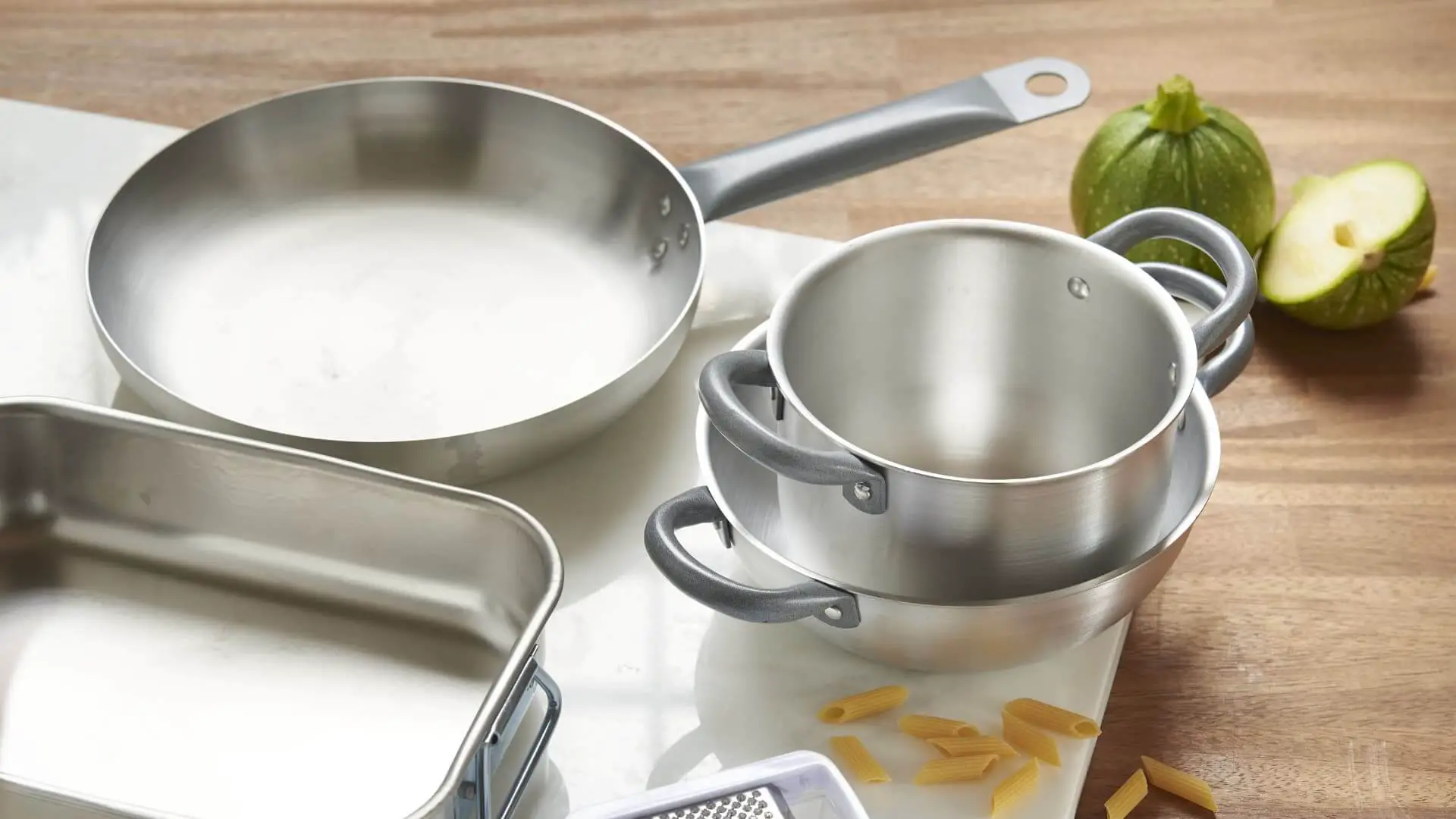
Additionally, seasoned pans are much easier to clean after cooking.
Second, seasoning will help to protect the pan from damage and wear. Aluminum pans are prone to discoloration if not properly seasoned, which can give them an unappealing look. Properly seasoning your aluminum cookware helps prevent this from occurring.
Finally, seasoning forms a protective barrier that helps block oxygen from reaching the aluminum. This helps to prevent oxidation of the metal, which in turn helps it last longer and stay looking great for many years.
Seasoning Aluminum Pans Before First Use
To ensure the best results, make sure to season your aluminum pan before using it. To do this, you will need vegetable shortening or cooking oil.
To begin, clean the aluminum pan with a mild soap and warm water, then allow it to air dry thoroughly. Any residue left behind from manufacturing can prevent proper seasoning.
Apply a thin layer of vegetable shortening or cooking oil to the inside of the aluminum pan. Make sure to coat every inch, including the handle and any nooks and crannies.
To melt the fat or oil into the surface of the pan, heat it over medium heat for 3 minutes. After melting, you may utilize a paper towel to distribute the oil evenly and ensure that it covers the entire surface of the pan.
Let the aluminum pan cool before storing it away for future use. Make sure to season your pan each time before using it, especially if it has been sitting unused for several months or years. This will help give your food an even, consistent cooking surface and prevent sticking. [1]
Cleaning an Aluminum Pan
Before seasoning an aluminum pan, it’s crucial to ensure that the pan is clean and completely dry. To clean your aluminum pan, prepare a mixture of warm water and dish soap in a container that can accommodate the pan. To remove stubborn residue from the aluminum pan, first soak it for approximately 30 minutes. After that, use a soft cloth or sponge to scrub it clean. After washing the pan, rinse it with clean water and use a kitchen towel or paper towels to thoroughly dry it.
Are Aluminum Pans Dishwasher Safe
Aluminum pans are generally safe to put in the dishwasher, although they may discolor over time. It is important to avoid using too much detergent when washing aluminum pans as it can cause pitting and etching, which will give the pan a dull appearance.
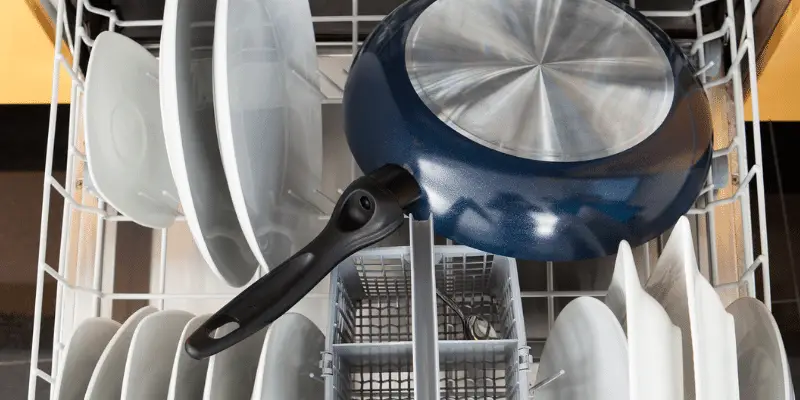
Additionally, scrubbing with abrasive materials should be avoided as it can cause scratches and marks on the surface. To minimize discoloration, it is better to hand wash the aluminum pan with a soft sponge and mild detergent rather than putting it in the dishwasher. For non-stick pans, stick to hand washing to preserve the coating. To prevent scratches, please avoid stacking pans on top of each other. Make sure to dry the pan completely after washing it to avoid any water damage and discoloration.
How to Season Aluminum Pans
Aluminum pans are a popular choice for cooking and baking. They are lightweight, conduct heat well, and have an attractive finish.
However, like all cookware, they require some maintenance to stay in top condition. To take good care of your aluminum pans and make them last longer, it is important to season them properly.
In order to season aluminum pans, begin by washing them with hot soapy water, then ensure that the pan is fully dried. First, apply a thin layer of cooking oil, like vegetable or canola oil, to the inside of the pan. Then, heat the pan in an oven at 350 degrees Fahrenheit for roughly an hour.
Using this will create a coating on the pan’s surface that prevents food from sticking.
It is important to take care of the seasoned pan going forward. For maintaining the quality of your aluminum pans, it’s essential to wash them by hand using hot soapy water after every use and dry them instantly. [2]
How Often Should I Season my Aluminum Pans
We suggest seasoning your aluminum pans every three months or when they appear dull or tarnished. For best results, it is recommended to refrain from using metal utensils while cooking and to clean with warm water and soap to preserve the non-stick coating. To remove stuck food from the pan, boil some water in it for a few minutes to loosen it, then use a soft nylon brush to scrub it.
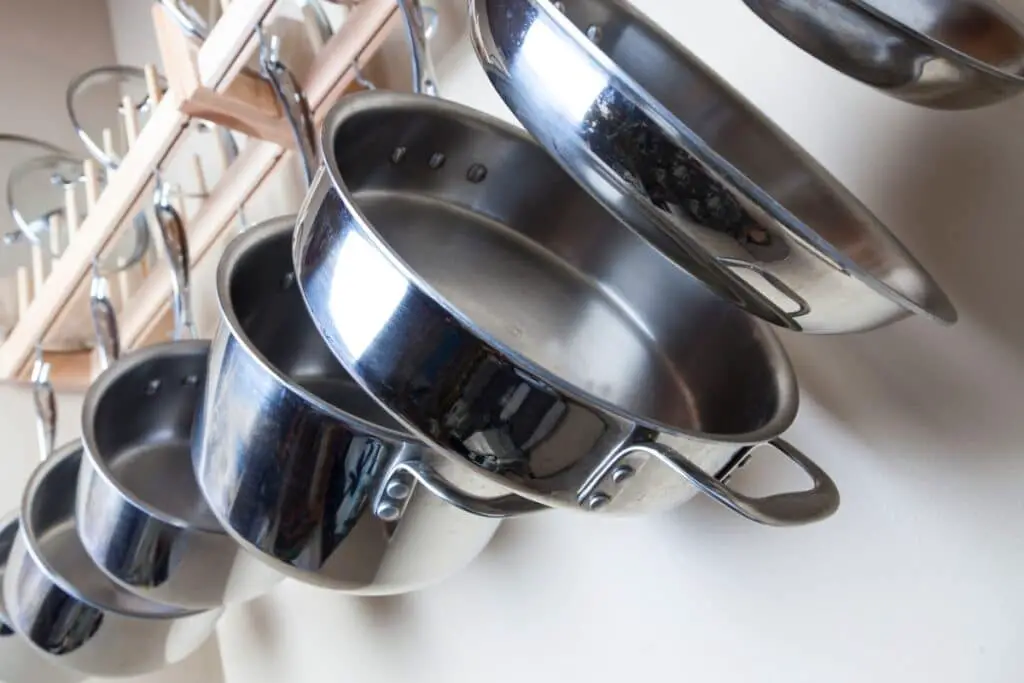
Also, try not to cook acidic foods such as tomatoes in your aluminum pan as this can cause the surface to corrode over time.
To avoid damaging your aluminum pans, be gentle and use a small amount of oil or butter when re-seasoning them. Overheating the pan can cause harm. Always remember to fully dry your aluminum pans using a paper towel after washing them and before re-seasoning them.
Benefits of Seasoning a Pan With Oil and Heat
Using oil and heat to season an aluminum pan has multiple advantages. It can seal the metal, which stops food from sticking during cooking. By seasoning, you can create a non-stick surface that eliminates the need for using butter or oil while cooking. To protect your aluminum pan from oxidation and damage during high-heat cooking, you can season it.
Cooking food in the oil-seasoned pan adds flavor and prevents it from taking on the flavors of previously cooked foods. For optimal results with your aluminum pan, it’s recommended that you season it with oil and heat it before its initial use.
Disadvantages of Not Seasoning Your Pans
Not seasoning your aluminum pans can lead to some problems.
Unseasoned pans are prone to sticking and they can also be difficult to clean. Additionally, food cooked in an unseasoned pan will not have the same flavor or texture that it would if it were cooked in a properly seasoned pan.
This can be difficult or impossible to remove without damaging the pan’s surface. A pan that has not been seasoned is more likely to rust and have a shorter lifespan compared to a pan that has been properly seasoned. [3]
Tips for Seasoning Aluminum Pans
Choosing aluminum pans for cooking is a wise decision because they are durable, conduct heat well, and are reasonably priced. Before using your aluminum pan, it is necessary to season it. The process of seasoning is crucial for preventing food from sticking to the pan and creating a non-stick coating on its surface. The following are tips for seasoning an aluminum pan.
Use the Right Oil
To properly season your aluminum pan, it is important to use the appropriate oil. Vegetable oil, canola oil, and grapeseed oil are the recommended oils for seasoning aluminum pans. These oils prevent smoking and strong odors when heated because they have a high smoke point. Avoid using butter or cooking spray as they can leave a sticky residue on the pan.
Don’t Use Too Much Oil
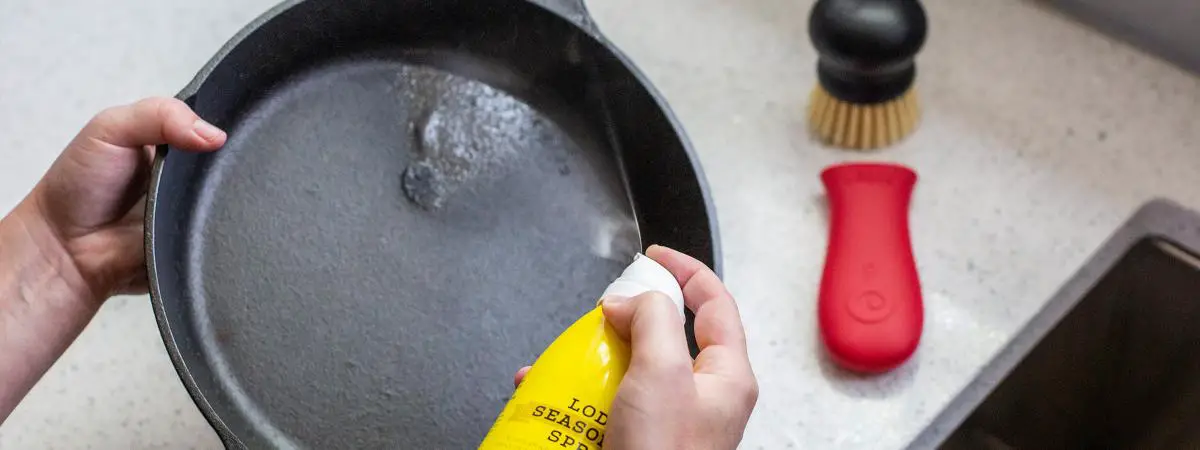
If you use an excessive amount of oil, it can result in the aluminum pan becoming covered in a sticky and greasy residue. To season an aluminum pan, apply a light coating of oil that is just enough to cover the entire surface of the pan. Gently rub the area with a paper towel or cloth until the substance is evenly spread out. [4]
Don’t Use Too High Temperature
Using the appropriate temperature is crucial for seasoning an aluminum pan. Excessive temperature can cause harm and devastate the pan. Generally, you should heat the pan between 375-400°F (190-204°C). For better results, heat your aluminum pans slowly over low or medium heat before adding oil.
Don’t Use Soap to Clean the Aluminum Pans After Seasoning
Once you finish seasoning your aluminum pans, it’s vital to avoid using soap while cleaning them.
When you use soap to clean a seasoned pan, it can strip off the non-stick coating created by the oil and fat. You should clean them using warm water and a soft cloth or sponge, without using soap. If there are any tough stains on the pan, you may use baking soda to remove them. To prevent the pan from getting scratched, refrain from using abrasive materials such as steel wool or scouring pads.
After washing, use a cloth towel to dry it off, and then store it in a cool and dry place until you need to use it again.
Use, Care, and Maintenance of Aluminum Cookware
Adding aluminum cookware to your kitchen can be a beneficial choice. It’s lightweight, versatile, and easy to clean. But in order to ensure that your aluminum pan remains in good condition and provides you with reliable performance for years to come, it is important to season it properly before use and follow proper care and maintenance guidelines. [5]
FAQ
What is the best way to season an aluminum pan?
For seasoning an aluminum pan, the recommended method is to apply a thin layer of oil or fat on it. To begin, use a dry pan and add a small amount of cooking oil or shortening. Make sure to spread the oil evenly over all surfaces of the pan. To prepare the pan, place it in an oven that has been preheated to 450 degrees Fahrenheit for approximately an hour.
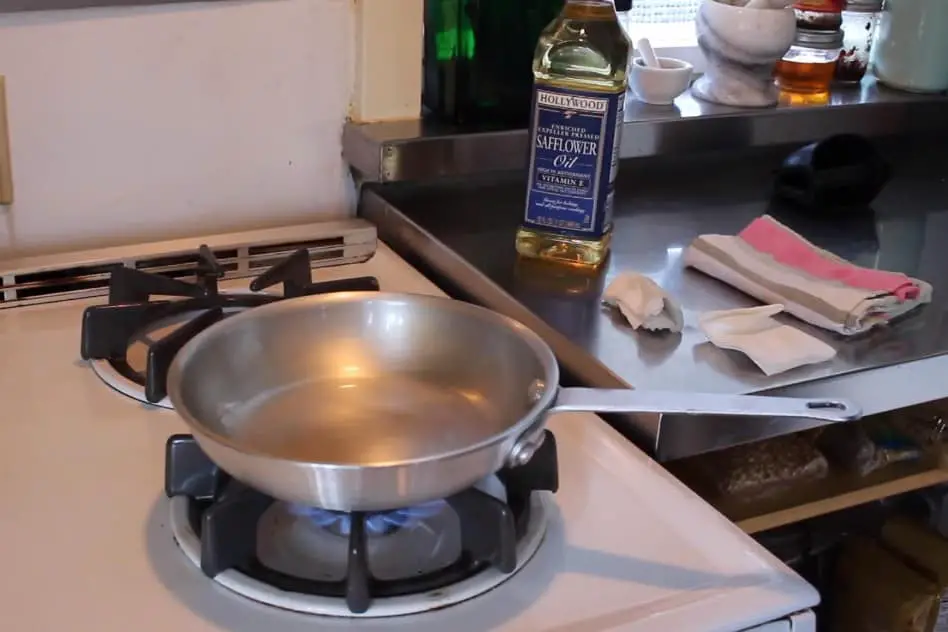
After that, switch off the heat and allow the pan to cool completely before using. You should repeat this process multiple times until you are satisfied with the outcomes.
Do aluminum pans need to be seasoned?
Aluminum pans should be seasoned for optimal performance. Aluminum pans that are not seasoned may stick and scratch easily due to their non-stick surface. Moreover, if they are exposed to high temperatures, they may discolor over time. To prevent food from sticking or burning when cooking, you can create a natural non-stick coating by seasoning aluminum pans.
How do you keep aluminum pans from sticking?
Although aluminum conducts heat well, it has a tendency to adhere to other surfaces. To prevent this issue, make sure to season your aluminum pan before its first use and after every cleaning session.
To season an aluminum pan, begin by cleaning it thoroughly with warm water and dish soap to eliminate any dirt or residue. Dry the pan thoroughly with a clean cloth. After the pan is dry, use a paper towel to rub a thin layer of cooking oil on the inside of the pan. Preheat your oven to 350°F and put the pan inside for approximately 20 minutes.
After that, allow it to cool before using it. To prevent your aluminum pans from sticking, make sure to repeat the seasoning process every few months or after each time you wash them.
How do you season an aluminum sheet pan?
To make your aluminum sheet pans last longer and cook food more evenly, it’s easy to season them.
To begin, clean the aluminum sheet pan by washing it with hot, soapy water. Use a clean cloth to dry it after rinsing it off.
To begin, set your oven to 375°F (190°C) for preheating. While the oven is preheating, put the aluminum sheet pan on the middle rack. The heat will cause the oils used for seasoning to bond better with the metal surface.
To season the pan, apply a layer of melted butter, vegetable oil, shortening, lard, or any other oil or fat that is not too thick.
Use a paper towel or cloth to apply the fat or oil onto the surface of the aluminum sheet pan and spread it evenly. Make sure to cover every inch evenly, including the sides and handles.
Put the pan into the oven and leave it for 30 minutes. After you finish using the oven, make sure to turn it off and allow it to cool before taking out the aluminum sheet pan. Your pan has been properly seasoned and is now ready to be used!
What not to cook in aluminum pots?
It is important to note that there are certain foods that should not be cooked in aluminum pots and pans. These include acidic foods such as tomatoes, wine, vinegar and citrus fruits. These types of ingredients can react with the metal causing them to discolor or leach off metal particles into the food, which can be harmful when ingested. It’s also not recommended to cook high fat items such as bacon in an aluminum pan as this may increase the amount of leaching. Stick to non-acidic and low-fat options for cooking in your aluminum pans.
It’s also important to note that once a pan has been seasoned with oil it should never be washed with soap, detergent or any other cleaning product containing harsh chemicals as this will strip away the seasoning and cause any future cooking to stick.
Can you use baking soda in an aluminum pan?
It is possible to use baking soda to season an aluminum pan. Using baking soda is a great way to get rid of grease and oil from your aluminum pan because it has gentle abrasive properties. Creating a protective layer on the surface will also aid in preventing food from sticking during the cooking process. To season an aluminum pan with baking soda, you should first create a paste by combining 1/2 cup of baking soda and one cup of water.
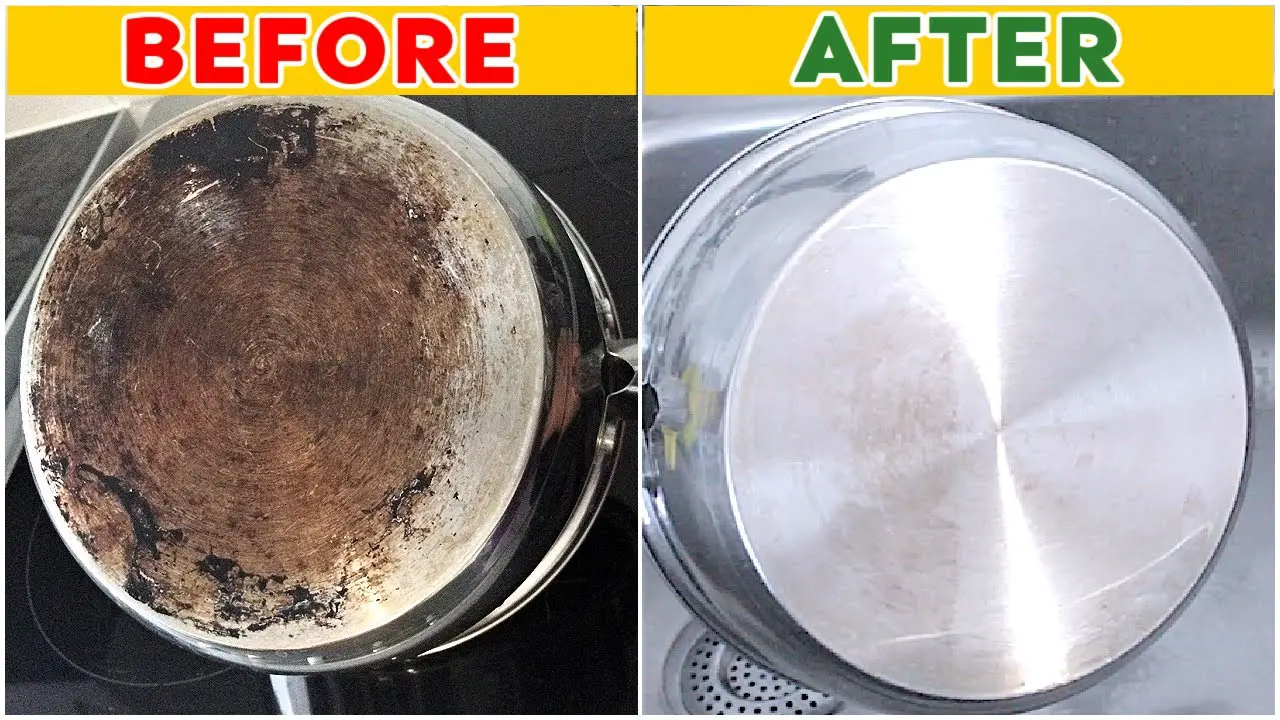
Next, lightly rub the paste onto the interior surfaces of the pan with a soft cloth or dish sponge. After having applied paste to the entire surface, use warm water to rinse off the paste. Then, dry the surface with a towel or paper towels. To cook, apply vegetable oil or non-stick cooking spray to the pan and then cook for 30 minutes over low heat. This process will help to season your aluminum pan and make it more resistant to sticking.
These steps will guide you in creating a protective layer on your aluminum pans, which will prevent food from sticking during cooking. Regular seasoning of your pans is essential for keeping them in good condition and making sure they are always ready for use.
What oil do you use to season aluminum pans?
It’s crucial to use a food-grade oil that is safe to consume and nontoxic while seasoning aluminum pans. The best oils to use for seasoning are vegetable oils such as olive, coconut or avocado as these are the least likely to turn rancid over time. You can also use other edible cooking oils such as peanut, flaxseed or sunflower.
Avoid using butter or lard as they are too thick and will not evenly coat the pan. Once you have selected your oil, apply it liberally all over the interior surface of the pan with a paper towel, making sure to cover every inch of space. To properly season your aluminum pan, it is recommended to use a generous amount of oil.
Why do chefs use aluminum pans?
Aluminum pans are widely used in professional kitchens because they provide even heat distribution and are lightweight, durable, non-toxic, and affordable. Aluminum is also a good conductor of heat making it ideal for sautéing or frying. The metal is malleable so the pan can be shaped into many different forms to suit a variety of cooking needs. Aluminum pans are available in all shapes and sizes including sheet pans, cake pans, roasting pans, skillet sets, saucepans, and more.
How do you cure aluminum pans?
When you buy a new aluminum pan, it needs to be “cured” before using. The process of curing an aluminum pan involves seasoning it to prevent food from sticking to its surface during cooking. To cure an aluminum pan, you first need to wash and dry it thoroughly.
Then, apply vegetable oil or shortening in a thin layer on the interior of the pan and spread evenly with your hands. To prepare the pan, set your oven to 350°F (175°C) and place the oiled pan inside. Leave it on for up to an hour until the entire interior surface is coated with a sheen or turns a light brown color.
Before using the pan, make sure to turn off the heat and let it cool down completely.
Repeating this curing process multiple times will result in a better non-stick surface. It may be necessary to re-season the pan if it has been used for a prolonged period of time. To do this, just follow the same steps as mentioned above and your aluminum pan will be good as new!
Remember that when cooking in an aluminum pan, you should always use wooden or plastic utensils to avoid scratching the interior surface. It’s important to avoid storing acidic foods, such as tomatoes, or salty foods, such as olives, in your aluminum pans without curing them first. This can lead to corrosion over time.
Can you put vinegar in an aluminum pan?
Yes, you can put vinegar in an aluminum pan. However, it should not be used for cooking or baking with vinegar as the acids in vinegar will corrode and wear down the aluminum. Instead, use it to clean and season your aluminum pan. To do this, fill a shallow layer of vinegar into the pan, let soak for a few minutes then rinse off with hot water. This helps to remove any gunk buildup and grease from previous uses.
Once rinsed off, dry completely and apply some vegetable oil on all surfaces of the pan before storing away. Doing this regularly ensures that your aluminum pans last longer and are better protected against damage.
Additionally, if you want to keep your aluminum cookware looking shiny and new, you can also use a mixture of baking soda and water. This helps to remove any discoloration caused by cooking or boiling food in the aluminum pan. Finally, keep it away from other cookware that has a higher heat capacity such as cast iron or steel pans as this could cause warping of your aluminum pans.
Useful Video: How to Season an Aluminum Wok
Conclusion
The process of seasoning aluminum pans is relatively uncomplicated, but it demands cautiousness and perseverance. A properly executed process will yield desirable outcomes as it produces a safer non-stick surface suitable for cooking. Before beginning the seasoning process, make sure your pan is clean and free from any residue or food particles. Next, apply shortening evenly over all surfaces and bake in the oven at a low temperature for an hour before allowing it to cool completely. Doing this will create a protective layer on the pan that prevents food from sticking and helps maintain its longevity.
References
- https://ovenspot.com/how-to-season-an-aluminum-pan/
- https://www.hunker.com/12318473/how-to-season-aluminum-pans
- https://bakingbakewaresets.com/how-to-season-aluminum-pans/
- https://www.katom.com/learning-center/care-handling-of-aluminum-cookware.html
- https://worldofpans.com/season-aluminum-pan/

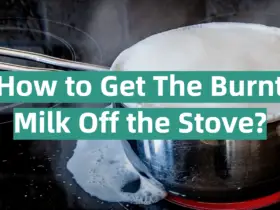



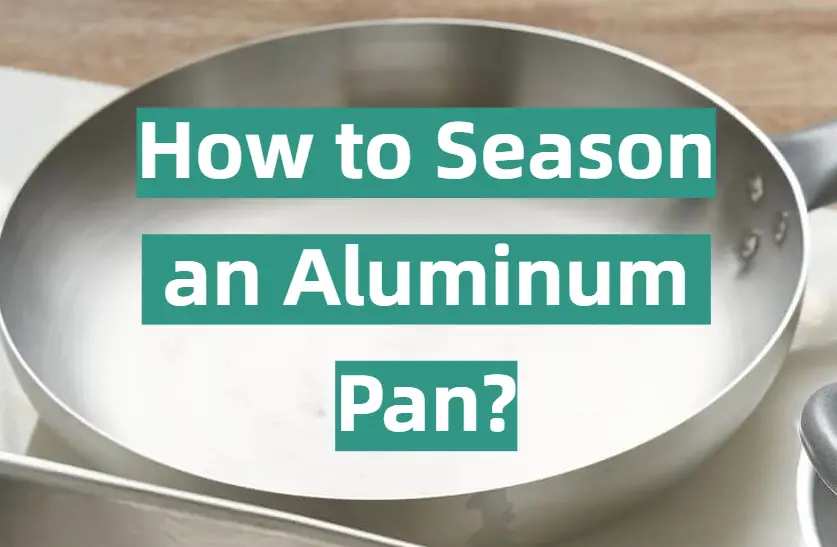

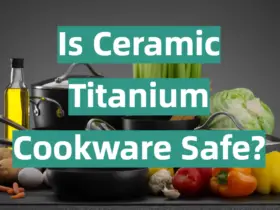
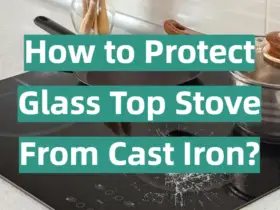



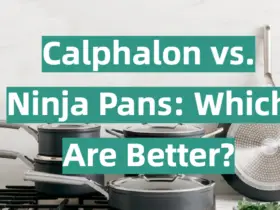

Leave a Reply